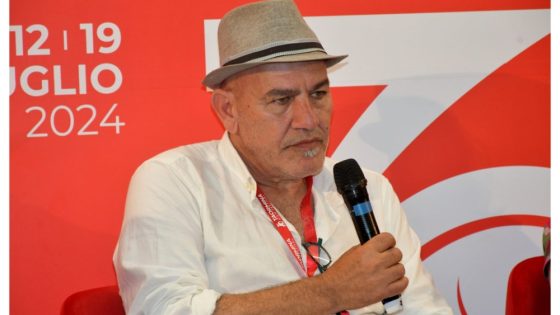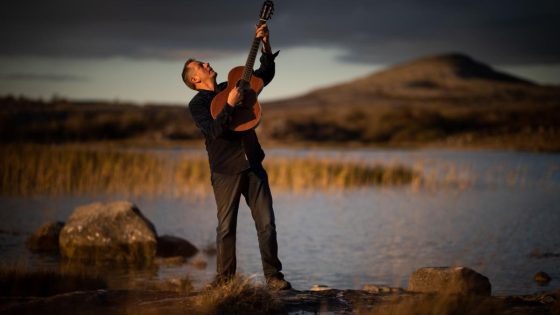At the Taormina Film Festival, Palestinian film director Rashid Masharawi presented “From Ground Zero,” a compilation of 22 short films, shot by filmmakers inside the Gaza Strip during the current war. He spoke with Variety about the process of making the film and what it means to face appalling conditions with art.
“I was born and grew up in Gaza, I made many films in Gaza as a director and producer, and this time after I saw all what’s going on, I said, ‘No, I am not going to make a film, instead, I’m going to give the chance to the Palestinian filmmakers, and filmmakers who are in Gaza now, sharing what’s going on with the people,’” Masharawi said.
“The idea was to focus on untold personal stories, and also to make them artistically, technically well, to train and make these filmmakers become better in order to film their stories so that they can be placed in festivals, and on television.”
Masharawi worked alongside French production company Coorigine Productions and producer Laura Nikolov, who took care of the coordination between all the groups in Gaza, receiving the material, and supervising the post-production.
Making the film was a logistical nightmare, as was getting footage out of Gaza. “It was one of our main problems to get out the material from Gaza and also to have contact all the time with the filmmakers. Even if we talk through internet, through social media, Facebook, WhatsApp, all these things. But once you have no electricity to charge your mobile, you have nothing,” he said. “Sometimes we were working and awake for 24 hours a day because in this area, there is electricity, there is internet that we can bring our best there to upload material to France. Our last film arrived two weeks ago.”
Incorporating 22 films into one work was a huge editing challenge, because “no one shoots with the same camera, with the same setup; the sound is different,” he said.
One of the shorts, “Sorry Cinema,” specifically talks about the limits of creating cinema in such difficult conditions.
“This is one of the films I have a special relation with, because you spend your life thinking that cinema is your priority in life. And suddenly, no, it’s not. You need to eat; save your family. Humans are more important than cinema,” he said.
“We make films to make life better, to make life easier, to make it more understood. To make humans feel better. This film describes this element very well because the director is in a situation that he needs to choose between life and cinema, and he chose life.”
So, what is the role of cinema? “Cinema is very important to me. I started to make cinema inside the Palestinian occupied territories more than 30 years ago,” he said. “I need to protect cinema from the Israeli occupation. Cinema must be not only a reaction; it should be an action. Palestinians, we are a nation. We have history, language, we have music, colors, food: we have many things which belong to us. All these things can be a strong ground to make cinema.”
Source Agencies



